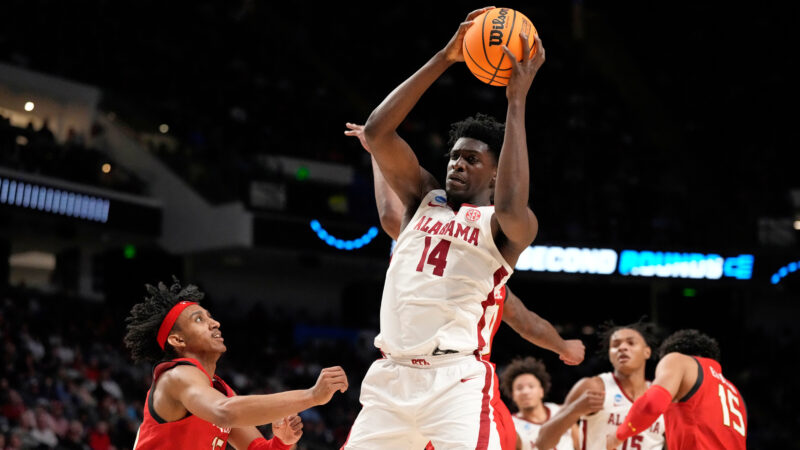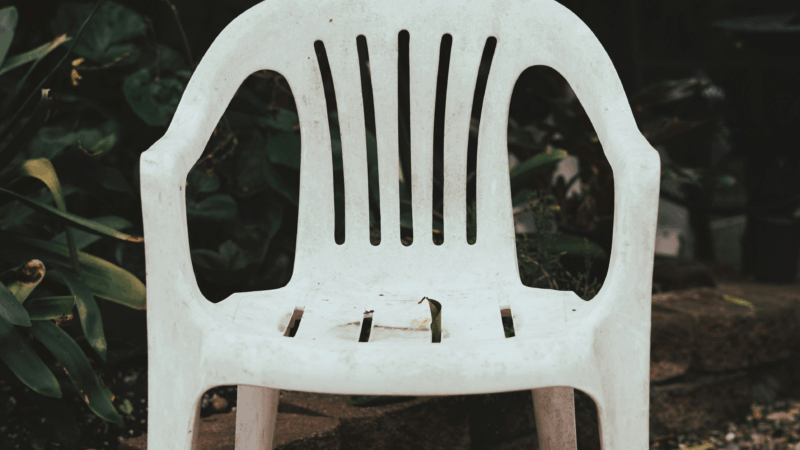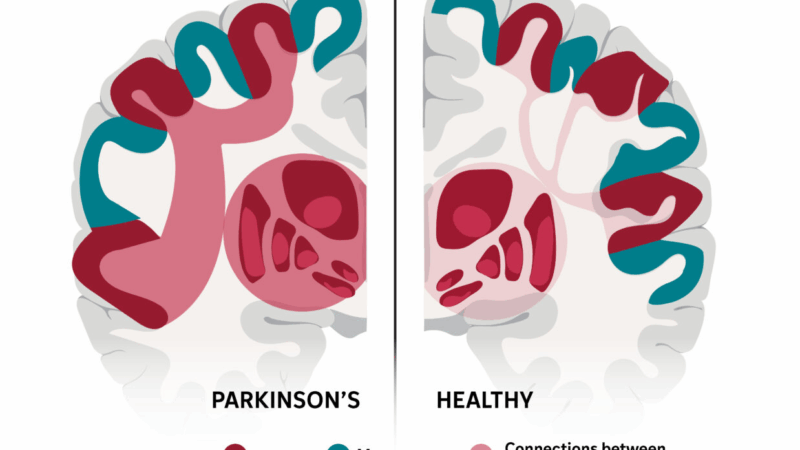Part war propaganda, part comic strip, Bayeux Tapestry to return to U.K.
LONDON — The earliest-known depiction of the 1066 Battle of Hastings — which began the Norman Conquest, changing England’s ethnic mix and history forever — is coming home for the first time in 900 or so years.
The Bayeux Tapestry looks like a 224-foot medieval comic strip with scenes from that iconic 1066 battle, when William, Duke of Normandy — better known as William the Conqueror — led an army from France that invaded England, killed its king, Harold, with an arrow to the eye, and installed William on his throne. The tapestry is often called the world’s first war propaganda, woven in wool on linen.
It’s believed to have been sewn in England a few years after the battle, and soon taken to France — where it’s currently displayed in a museum in the medieval town of Bayeux, Normandy. England has had to make do with only a 19th century replica, in one of its own museums.
But when the Bayeux museum closes this September, for two years of renovations, its famous tapestry will be packed up and sent on temporary loan to the United Kingdom — where it will go on display in London’s British Museum starting in Sept. 2026.
Tapestry loan took longer to organize than Brexit
French President Emmanuel Macron and British Prime Minister Keir Starmer announced the deal this week during a three-day U.K. state visit by Macron that was full of pomp and pageantry, including a horse-drawn carriage ride with King Charles III.
Macron and Starmer also agreed to increase support for Ukraine’s defense, and announced a “one in, one out” deal to tackle illegal migration across their water border in the English Channel. Under that deal, within weeks the U.K. would return some undocumented migrants across the Channel to France, in return for an equal number of asylum seekers who’ve filed applications and have been waiting there.
In a speech Tuesday to the U.K. Parliament, Macron noted that in 2027, William the Conqueror would have celebrated his 1,000th birthday.
“I have to say, it took probably more years to deliver this project than all the Brexit texts,” the French president joked to Parliament, referring to Britain’s 2016 vote and 2020 exit from the European Union.
Speaking Wednesday alongside Macron at the British Museum, Starmer noted the year 1066 is iconic in England — even though it marked a historic battlefield loss to French troops.
“The Battle of Hastings, illustrated by the remarkable Bayeux Tapestry, was the beginning of 1,000 years of shared culture that is now defined by mutual admiration and kinship,” the prime minister said.
The British Museum has many other artifacts other countries want back
In exchange for the tapestry, the British Museum says it will send on loan to museums in Normandy several “treasures” that represent the four nations of the U.K. — England, Wales, Scotland and Northern Ireland. They include Byzantine artifacts unearthed at the Sutton Hoo ship burial site in eastern England, and 12th century chess pieces carved from walrus ivory and discovered buried in a sand dune on Scotland’s Isle of Lewis.
Museum experts say the exchange is part of a bigger trend of museums giving things back. The British Museum has many artifacts in its collection which were plundered during imperial and colonial eras, and are contested. It even publishes a list on its website.
“There’s a lot of talk about slippery slopes and museums emptying,” says Sarah Baxter, who serves on the advisory board of the Parthenon Project, lobbying the British Museum to return to the so-called Elgin Marbles to Greece, where they were plundered from the Parthenon. “But I think what the Bayeux Tapestry coming to Britain does show though is the power of a partnership as the diplomatic solution.”
Transcript:
ARI SHAPIRO, HOST:
This week, French President Emmanuel Macron and British Prime Minister Keir Starmer met to discuss Ukraine and migration. But the two allies also discussed another conflict, one that goes way back to the year 1066. From London, NPR’s Lauren Frayer explains.
(SOUNDBITE OF ARCHIVED RECORDING)
UNIDENTIFIED NARRATOR: On this hillside, on Saturday, 14 October, 1066, a single battle between a few thousand men permanently changed the course of history in England and beyond.
LAUREN FRAYER, BYLINE: It was the Battle of Hastings, the start of the Norman Conquest, as this BBC documentary explains, when William, Duke of Normandy, better known as William the Conqueror, led an army from France that invaded England, killed its King Harold with an arrow to the eye and installed William on his throne. But there are no hard feelings.
SARAH BAXTER: Britons are great, by the way, of making a great triumph out of a defeat. And I studied history at Oxford. My courses started at 1066.
FRAYER: Sarah Baxter is an antiquities expert who, like generations of school kids here, learned their country’s history began in 1066. There’s a popular satirical history book called “1066 And All That.” The date is even immortalized in a ubiquitous car insurance ad on TV.
(SOUNDBITE OF ARCHIVED RECORDING)
UNIDENTIFIED VOICEOVER: Insurance.
UNIDENTIFIED ACTOR #1: (As character) 0800 00 1066.
UNIDENTIFIED ACTOR #2: (As character) Or visit our website.
FRAYER: And so when French President Macron visited this week, British Prime Minister Starmer stood next to him and waxed poetic about that 1066 battle that his country lost because it was the beginning, he said…
(SOUNDBITE OF ARCHIVED RECORDING)
PRIME MINISTER KEIR STARMER: Of a thousand years of shared culture that is now defined by mutual admiration and kinship.
FRAYER: And Macron, noting that in 2027, William the Conqueror has his 1,000th birthday, said this…
(SOUNDBITE OF ARCHIVED RECORDING)
PRESIDENT EMMANUEL MACRON: France will loan the United Kingdom the Bayeux Tapestry.
(APPLAUSE)
FRAYER: The Bayeux Tapestry is the earliest known depiction of that 1066 battle and the world’s first war propaganda, woven in wool on linen. It looks like a 230-foot comic strip, complete with that scene of King Harold with an arrow in his eye. Sown in England, it was plundered away to Bayeux, France. But next year, for the first time in 900 or so years, it is coming home on loan to London’s British Museum, which is home to more than a few things plundered from elsewhere.
BAXTER: They are very sticky diplomatic things.
FRAYER: Sarah Baxter, who studied history at Oxford, as you heard earlier, says the return of the Bayeux Tapestry is part of a bigger trend of museums giving things back. She serves on the advisory board of the Parthenon Project, lobbying the British Museum to return the so-called Elgin Marbles to Greece, where they were plundered from the Parthenon. She’s hopeful that museums may be catching up with modern sensibilities. The British Museum has already given back some of the Benin Bronzes to modern-day Nigeria.
BAXTER: There’s a lot of talk about slippery slopes and museums emptying. But I think what the Bayeux Tapestry coming to Britain does show, though, is the power of the partnership is the diplomatic solution.
FRAYER: The power of a partnership to overcome who conquered who back in 1066 and share what’s left of that history.
Lauren Frayer, NPR News, London.
(SOUNDBITE OF ADRIAN YOUNGE SONG, “STEP BEYOND (FEAT. BILAL & LAETITIA SADIER)”)
Judge rules 7-foot center Charles Bediako is no longer eligible to play for Alabama
Bediako was playing under a temporary restraining order that allowed the former NBA G League player to join Alabama in the middle of the season despite questions regarding his collegiate eligibility.
American Ben Ogden wins silver, breaking 50 year medal drought for U.S. men’s cross-country skiing
Ben Ogden of Vermont skied powerfully, finishing just behind Johannes Hoesflot Klaebo of Norway. It was the first Olympic medal for a U.S. men's cross-country skier since 1976.
An ape, a tea party — and the ability to imagine
The ability to imagine — to play pretend — has long been thought to be unique to humans. A new study suggests one of our closest living relatives can do it too.
How much power does the Fed chair really have?
On paper, the Fed chair is just one vote among many. In practice, the job carries far more influence. We analyze what gives the Fed chair power.
In a world built for sitting, here’s how to stay active — even when stuck inside
In the office, classroom and living room, working and relaxing mean sitting still. Our bodies evolved without chairs. Here are some tips for getting out of your seat and moving — even on cold days.
This complex brain network may explain many of Parkinson’s stranger symptoms
Parkinson's disease appears to disrupt a brain network involved in everything from movement to memory.








